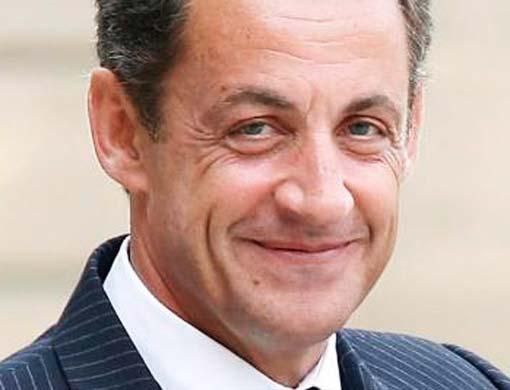In the early 19th century, the German strategic thinker Karl Von Clausewitz wrote that "leaders do often change history. The challenge, however, is to change it in a positive manner".
After the September 11 attacks on the US, President George W. Bush changed American foreign policy in a way never seen before. He led what many experts have dubbed as "the Bush Revolution in Foreign Policy".
This revolution included abandoning the classic doctrine of the Cold War - i.e. containment and deterrence - and replaced it with a more aggressive foreign policy, based on unilateralism and pre-emption.
Thanks to this "revolution", the US fought two wars in Afghanistan and Iraq and supported anti-insurgency operations in over 60 countries around the world. French president, Nicolas Sarkozy, seems to be also leading his own revolution in foreign policy.
The "Sarkozy Revolution" was revealed in a major foreign policy speech during a reception the Elysee hosted last August and attended by France's ambassadors around the world.
In his speech, Sarkozy emphasised that his country is still a major world power and that he is determined to enhance its position world-wide. He promised to regain his country's influence in Africa and the Middle East, among many places around the world.
Sarkozy insisted that he will be doing that in co-ordination with Washington, rather than confrontation, referring to the French opposition to the US invasion of Iraq.
Vision
Sarkozy was quick to implement his vision in foreign policy. Over the past few weeks, he took a stance on Iran much closer to Washington's hawkish policy than many have expected. French Foreign Minister Bernard Kouchner flew to Washington and New York to establish a united position with the Bush administration on Iran's nuclear crisis.
In New York, Kouchner is said to have tried to reach a deal on new United Nations sanctions against Iran and indicated that his country might push for separate European Union measures as well.
Experts believe that this shift in France's policy signals Sarkozy's impatience with Iran's elusive approach concerning its nuclear programme. But, the shift is, in fact, much more significant than that.
In the previous week, Kouchner sent waves of shocks across Europe when he threatened military action against Iran for its failure to suspend uranium enrichment.
"The world should prepare for a possible war with Iran," Kouchner said in a press interview. Although the eloquent minister tried to explain his words after a wave of criticism inside France and out, he did not retract them, however.
The US media celebrated this change in France's foreign policy, considering it a victory for the Bush administration. The New York Times praised what it called the "French Revolution of 2007", which "has not seen heads roll but has involved the destruction of 10 taboos as Sarkozy assumes the role of Europe's most dynamic leader".
The most important taboo that has been destroyed by Sarkozy was on the Middle East. "Strong French ties and traditions in the Middle East dictated coolness toward Israel. Chirac let slip that an Iranian nuclear bomb might be acceptable, before saying he'd misspoken.
Now Sarkozy, forthright in his support of Israel, declares that "an Iranian bomb or the bombing of Iran" may be the terrible choice looming; his foreign minister says the world should "prepare for the worst" in Iran, meaning war.
Iran is no Arab country, but these utterances betray a changed politique Arabe", the US paper concluded.
Clausewitz was absolutely right when he stated that "leaders do often change history", what is not clear, however, is if Sarkozy will change it in "a positive manner".
Dr Marwan Kabalan is a lecturer in media and international relations, Faculty of Political Science and Media, Damascus University, Syria.










